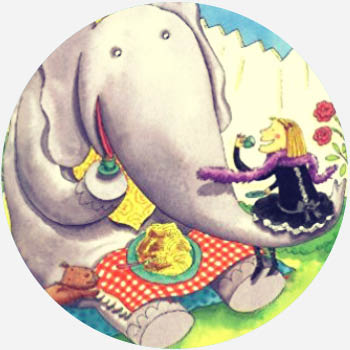
Miss Mary Mack, Mack, Mack (Handclapping Rhyme)https://www.youtube.com/watch?v=Bg5OrMRcq3w
Miss Mary Mack, Mack, Mack,
All dressed in black, black, black,
With silver button, button, buttons,
All down her back, back, back.
She asked her mother, mother, mother,
For fifty cent, cent, cents,
To see the elephant, elephant, elephants,
Jump the fence, fence, fence.
They jumped so high, high, high,
They touched the sky, sky, sky,
And didn't come back, back, back
Till the fourth of July, July, July.
All dressed in black, black, black,
With silver button, button, buttons,
All down her back, back, back.
She asked her mother, mother, mother,
For fifty cent, cent, cents,
To see the elephant, elephant, elephants,
Jump the fence, fence, fence.
They jumped so high, high, high,
They touched the sky, sky, sky,
And didn't come back, back, back
Till the fourth of July, July, July.
Here, you have an example of a Nursery rhyme to work in class. You can have a lot of fun with your students.
Nursery rhymes are short songs and verses often read or sung to, or by, young children https://www.youtube.com/watch?v=nrv495corBc. These songs vary in style, subject, tone, and theme, although many are marked by a use of rhythm and rhyme that makes them easy to remember. They include nonsense rhymes, lullabies, finger-plays, counting-out rhymes, riddles, games, songs, and ballads, among other types. While some rhymes seem designed purely to amuse, others are didactic and educational, including those intended to help children learn the alphabet and numbers.

Comentarios
Publicar un comentario